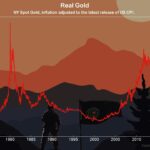You have probably invested at some point in ETFs or ETNs. The exchange-traded investments have thrived for decades now as a lower-cost and more efficient alternative to mutual funds. But after years of huge fund companies issuing new ETFs and ETNs by just throwing products at the wall to see what stuck, the industry is shaking out.
The Wall Street Journal reports that this year alone 188 exchange-traded products have been shut down. Michael Wursthorn writes:
Asset managers have closed more exchange-traded products than they have launched this year, a sign of how market gyrations have accelerated an industry shakeout.
So far this year, 188 exchange-traded products, including funds and notes, have been shut down, the most on record, according to FactSet. The closures occurred at big and small asset managers alike, including BlackRock Inc., which manages the popular suite of iShares ETFs; JPMorgan Chase & Co.; Invesco Ltd.; ProShares and Direxion.
Meanwhile, launches have been sparse, with just 161 new offerings coming to market, the lowest number since 2013.
Two factors appear to be driving the shakeout: an oversaturated industry and the unprecedented volatility that has rocked markets this year.
“Some of the larger firms like [BlackRock’s] iShares and Invesco have a broad suite of products. And it’s common for them to prune their lineup based on where the money hasn’t gone into,” said Todd Rosenbluth, head of ETF and mutual-fund research at CFRA. “Some leveraged and inverse exchange-traded products have also been volatile.”
Number of exchange-traded productslaunched and closed, by yearSource: FactSetNote: Totals for 2020 are through Aug. 19.LaunchesClosures19952000’05’10’15’20-200-1000100200300Asset managers, including Invesco and BlackRock, have been trimming their exchange-traded product lineups in recent years, dumping funds that fail to attract enough assets to support themselves. That threshold is typically at least $50 million.
Invesco, for example, closed more than three dozen ETFs earlier this year as part of a streamlining following the purchases of OppenheimerFunds in May 2019 and Guggenheim Investments’ ETF business in 2018.
BlackRock closed eight funds so far this year but also launched 26 new products, including seven funds focused on socially responsible investing.
BlackRock of course is the world’s largest asset manager and has decided to pursue the social goals of its CEO Larry Fink, rather than the prudent management of clients’ assets.
Much of the growth in exchange-traded products has stemmed from the boom in index investing. The late Jack Bogle warned about the possibility that index funds had become “too successful,” for their own good. The current shakeout in exchange-traded products might be evidence he was correct.
Index funds are dangerous, especially as more and more of the market is taken up by fewer securities. Recently, the decision by Apple to perform a four-to-one stock split has forced the managers of the Dow Jones Industrial Average index to change the index’s makeup. Because the DJIA index is price-weighted and Apple’s current high stock price, the change in Apple’s share prices will alter the fund so much that its constituents must be changed so it will better represent the market. Meanwhile, owners of DJIA index funds will watch as the companies managing those funds make changes to their investments to catch up to the decision.
Michael Wursthorn again reports for the Wall Street Journal:
The Dow is a price-weighted index, meaning higher-priced stocks contribute more points to the index’s daily moves. Apple shares currently trade higher than the 29 other stocks in the Dow, giving them the most sway over the direction of the index. UnitedHealth Group Inc. will take that mantle beginning next week when Apple’s influence wanes and it drops to the middle of the pack.
Apple’s split alone will reduce the weighting of information technology to 20% from nearly 28%, according to Howard Silverblatt, a senior index analyst with S&P Dow Jones Indices.
“To some degree, the impact on the Dow of the split is similar to profit taking, since the gains are locked in and then reallocated into the portfolio,” Mr. Silverblatt added in an email.
The additions, as well as the stock split, won’t disrupt the level of the Dow. That is because S&P is also modifying the so-called Dow divisor, which is used to calculate the index’s point gains or subtractions by multiplying it against the individual price moves of each stock.
The Dow remains down 0.8% for the year and 4.2% below its precoronavirus-crisis high. The S&P 500, in comparison, hit its first record in six months last week and is up 6.2% so far in 2020.
Without making any other changes to the index, the performance gap between the Dow and the S&P 500 would have likely widened even further. Just five tech companies, including Apple, make up roughly one-quarter of the market-cap weighted S&P 500, giving them considerable influence over its direction.
It’s probably not good for the market when five companies have that much sway over the most popular market indices.
Action Plan: Work with a responsible investment counsel who will help you develop a plan for investment success based on patience, dividends, and compound interest.
E.J. Smith - Your Survival Guy
Latest posts by E.J. Smith - Your Survival Guy (see all)
- Yes, Money Can Buy You Happiness - April 23, 2024
- State Income Taxes and the 2024 NFL Draft Class - April 23, 2024
- This ARK is Sinking - April 23, 2024
- “That’s Why I Hired You,” They Tell Me - April 22, 2024
- The Silver Lining of Higher Interest Rates - April 22, 2024
















